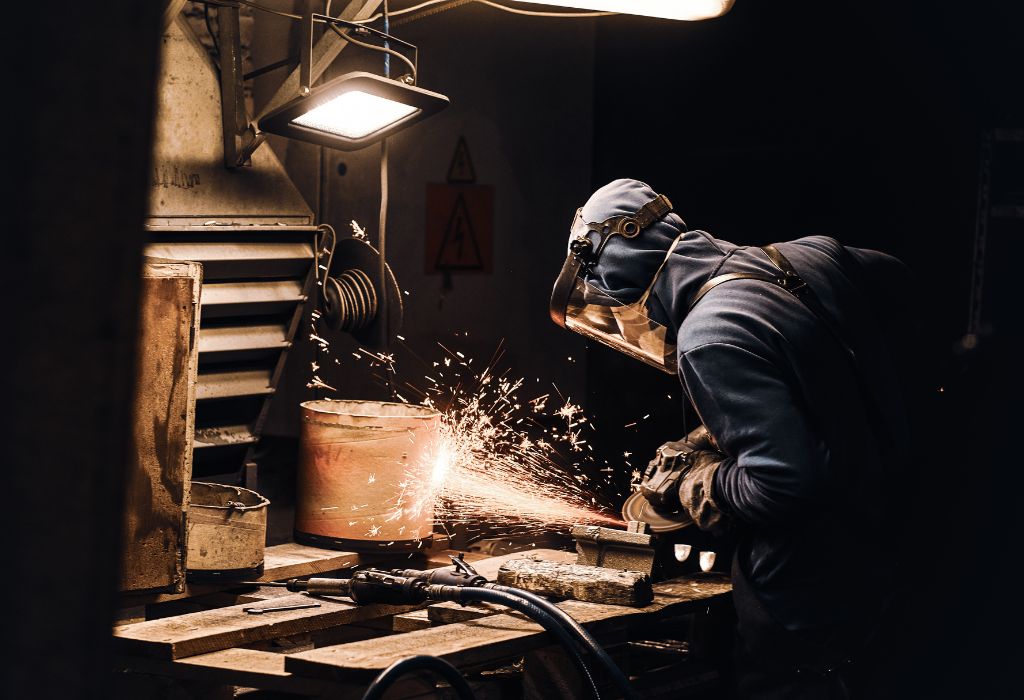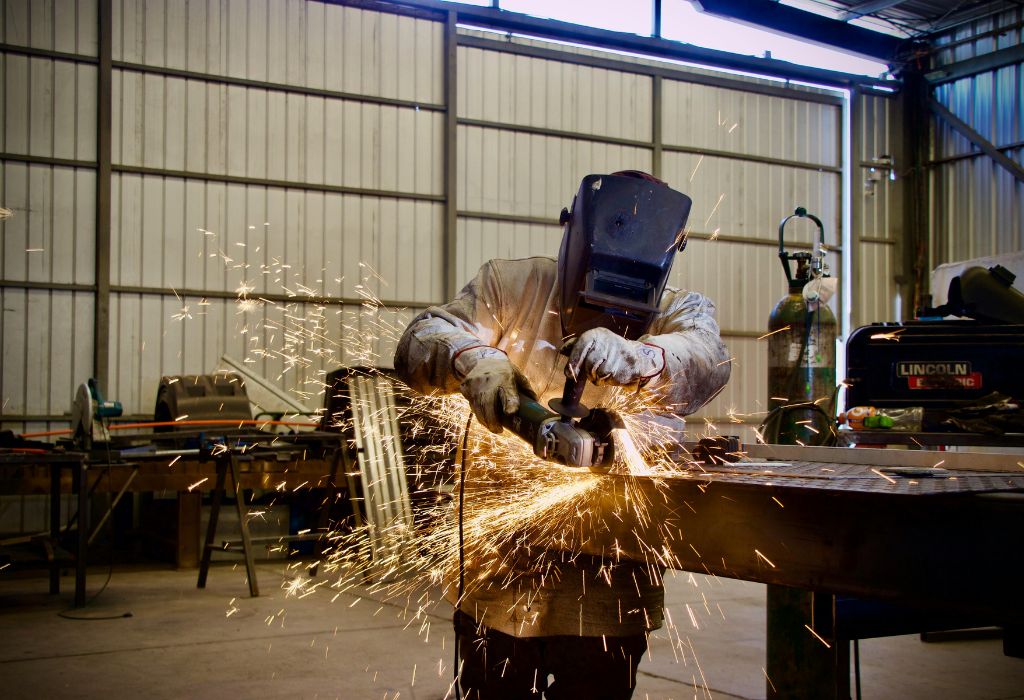Picture a construction site where massive steel pipes are being fitted together to carry oil, gas, or water.
At the center of this demanding work stands the pipe welder, carefully fusing metal joints that must withstand extreme pressure and time.
But how long does it take to acquire the skills needed for such a high-stakes career?
Pipe welding is one of the most challenging specializations in the welding industry.
Unlike general welding, it requires advanced precision, certifications, and often years of practice to achieve proficiency.
According to the U.S. Bureau of Labor Statistics, over 397,000 welders, cutters, and related workers were employed in 2023, with pipeline and structural welding ranked among the highest-paying categories.
Training can be as short as seven months through trade schools or stretch into five years with full apprenticeships.
The exact timeline depends on whether you pursue formal schooling, on-the-job training, or both.
With demand for skilled welders expected to grow by 6% from 2022 to 2032, mastering pipe welding is not just a career choice but an opportunity for long-term stability.
This guide breaks down every stage of the journey — from training programs to certifications, costs, and career growth — so you’ll know exactly how long it takes to become a pipe welder.
The Short Answer — How Long Does It Take to Become a Pipe Welder?
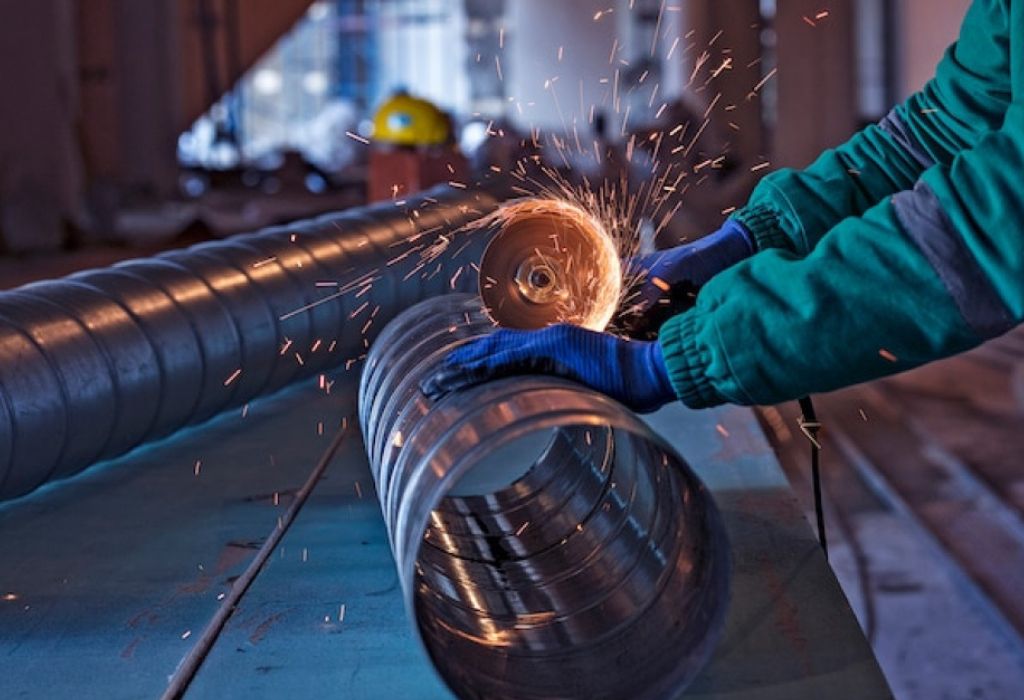
Becoming a pipe welder takes between 7 months and 5 years, depending on your chosen path. Trade schools and certificate programs prepare you for entry-level welding in under a year, while apprenticeships take longer but offer deeper skill development.
Pipe welding requires advanced certifications like the 6G test, which can add time to your training. Those who pursue advanced career paths often invest several years to refine their skills fully.
How long does welding school take?
Most welding schools last 7–12 months, covering basic to intermediate skills.
Can someone start working in less than a year?
Yes, short-term programs allow entry-level work, though advanced certifications may still be required.
How long does an apprenticeship last?
Apprenticeships typically last 3–5 years, blending classroom hours with hands-on welding practice.
Does experience speed things up?
Yes, prior training or related mechanical skills can shorten the timeline significantly.
Is pipe welding harder to qualify for?
Yes, because passing the 6G certification test requires advanced skill and extra practice time.
Training Options for Pipe Welders
Training pathways vary, but each influences how long it takes to become a certified pipe welder. The most common routes include trade schools, community colleges, and apprenticeships.
Trade schools focus on intensive, hands-on learning. Community colleges offer welding technology programs with broader coursework. Apprenticeships combine paid work with structured instruction, but they take the longest to complete.
What is the fastest training option?
Trade schools, as they can certify welders in less than a year.
Do community colleges take longer?
Yes, associate degree programs usually last 2 years.
Are apprenticeships worth the wait?
Yes, apprenticeships may take 3–5 years but provide strong job placement and real-world skills.
Which option is most affordable?
Apprenticeships are cost-effective since they pay you while you learn.
Can you combine school and apprenticeship?
Yes, many welders start with trade school, then continue learning through apprenticeships.
Welding Certifications and Why They Matter
Pipe welders need certifications to prove their skills. The most common is the 6G pipe welding certification, which tests ability to weld in multiple positions on a fixed pipe. Without this certification, opportunities in pipeline, oil, and gas industries are limited.
Certifications can take weeks or months depending on training progress. Advanced credentials like AWS (American Welding Society) certifications may extend training further.
What is the 6G certification?
It’s a test requiring welds on a pipe fixed at a 45-degree angle — one of the toughest exams in welding.
How long does certification prep take?
Typically 2–6 months, depending on skill level.
Are certifications mandatory for all welders?
Not for all, but they are essential for specialized fields like pipe welding.
Can certifications be renewed?
Yes, most need renewal every few years to maintain industry standards.
Do employers require certifications?
Yes, especially in oil, gas, and construction industries.
Costs and Time Investment of Training
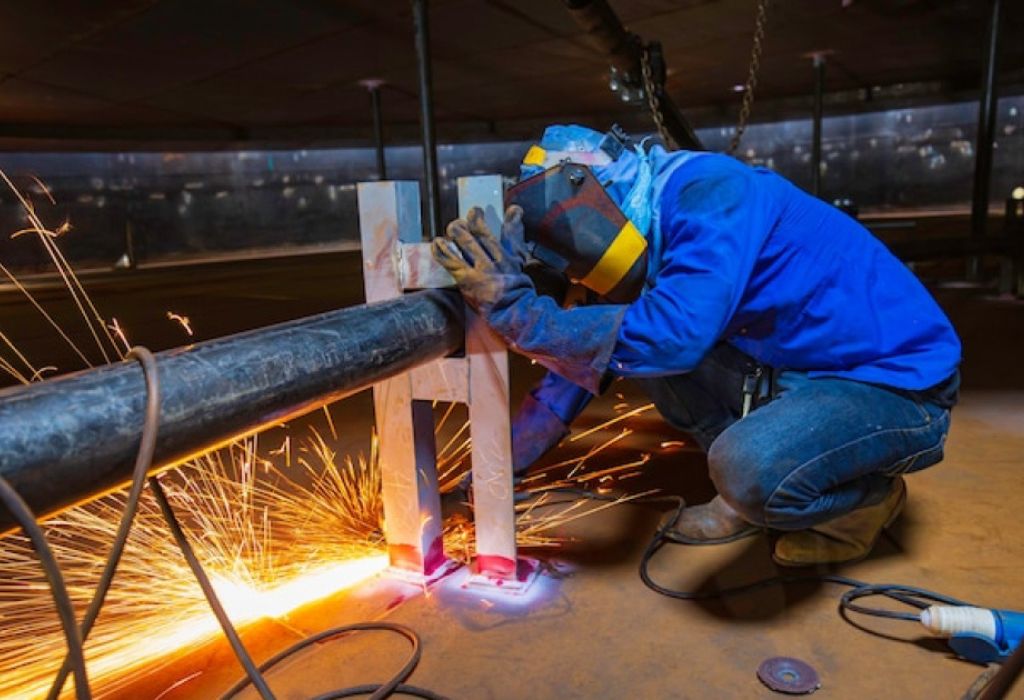
The cost of welding training influences how long students stay in school. Trade school programs range from $5,000 to $15,000, while community college degrees may cost more. Apprenticeships are often free or even pay wages during training.
Financial investment can affect how quickly someone completes their education, as part-time learners may take longer. Scholarships and grants can help offset costs.
What is the average cost of welding school?
Between $5,000 and $15,000 depending on program length.
Are apprenticeships cheaper?
Yes, since you earn while you learn, reducing overall costs.
Does cost affect training time?
Yes, financial limitations may force students to study part-time, increasing duration.
Are there free training options?
Some unions and workforce programs cover full costs.
Do higher costs mean better training?
Not always, but reputable programs with certifications are worth the investment.
On-the-Job Training and Apprenticeships
Hands-on training is crucial for pipe welders. Apprenticeships usually last 3–5 years, offering classroom instruction alongside thousands of hours of welding practice.
This method is slower than trade school but builds stronger foundations for long-term careers. Apprenticeships are ideal for those aiming for union jobs or large industrial projects.
How many hours does an apprenticeship require?
Most programs include 8,000+ hours of work.
Do apprentices get paid?
Yes, though wages are lower than certified welders, they increase over time.
Is classroom learning included?
Yes, apprentices split time between practical work and coursework.
Do apprenticeships guarantee jobs?
Many lead directly to full-time positions with sponsoring companies.
Are apprenticeships the longest path?
Yes, but they often provide the most secure career outcomes.
Skills Needed for Pipe Welding Success
Pipe welders need precision, stamina, and technical skills. Key techniques include TIG, MIG, and stick welding. Strong math skills, blueprint reading, and safety awareness are also essential.
Soft skills like teamwork, focus, and adaptability determine long-term success. Without these, even certified welders may struggle to advance.
What welding processes are most important?
TIG and stick welding are critical for pipe joints.
Do pipe welders need physical strength?
Yes, the job requires lifting, bending, and working in tight spaces.
Are soft skills important?
Yes, communication and problem-solving are vital on job sites.
Do welders need math skills?
Yes, for measuring angles, pipe dimensions, and precision cuts.
Is safety training required?
Yes, OSHA and industry-specific training are mandatory.
Career Outlook and Salary for Pipe Welders
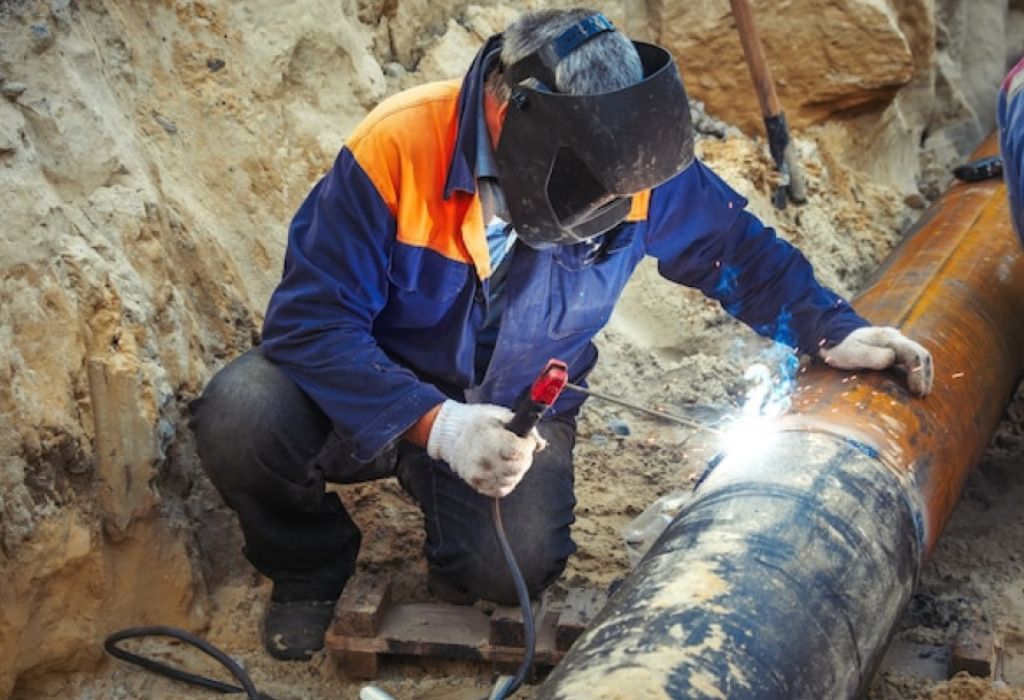
Pipe welders earn more than many other welding specialists due to the complexity of their work. According to PayScale, the average pipe welder salary in the U.S. is around $60,000 annually, with top earners exceeding $80,000 depending on experience and location (source).
The energy sector, shipbuilding, and industrial construction offer some of the highest-paying roles. Union jobs also provide strong benefits and security.
What is the average starting salary?
Entry-level pipe welders earn around $40,000–$45,000 per year.
Do experienced welders earn more?
Yes, with certifications and experience, salaries can exceed $80,000.
Which industries pay the best?
Oil, gas, and pipeline construction.
Is the career outlook strong?
Yes, demand is projected to rise 6% by 2032.
Do union welders earn more?
Often yes, due to better contracts and benefits.
Conclusion
So, how long does it take to become a pipe welder? The answer ranges from 7 months to 5 years, depending on whether you choose a fast-track program or a full apprenticeship. Short-term trade schools offer speed, while apprenticeships provide depth and career security.
Pipe welding is a challenging path, but one with strong rewards in salary, demand, and job stability. With the right training and certifications, you can build a career that is both financially and personally fulfilling.

I’m Darrell Julian, the founder, lead writer, and hands-on welding enthusiast behind ArcWeldingPro.com. With more than 15 years of real-world welding experience, I created this platform to share what I’ve learned in the field, in the shop, and in the heat of the arc.

